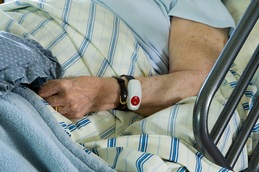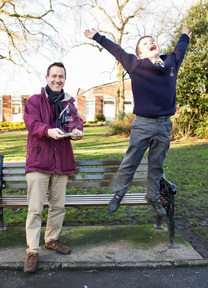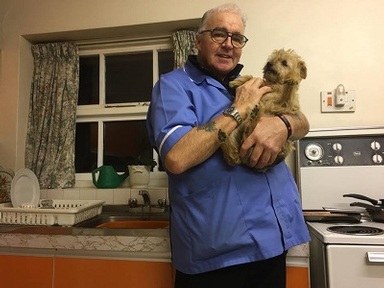'Not just a funny turn' campaign highlights seriousness of acting on mini stroke to carers

Care providers need training in recognising TIA or mini strokes as a serious medical emergency and not ‘just a funny turn’.
The Stroke Association has called for more to be done to educate carers on the importance of taking transient ischaemic attacks, also known as a mini stroke, seriously to ensure carers know what to do if someone in their care shows symptoms of experiencing a mini stroke.
Around 10,000 lives could be saved if care workers were better trained to understand the signs of Transient Ischaemic Attack (TIA) attack also known as a mini stroke, the Stroke Association has claimed.
As part of Stroke awareness month last month, the Stroke Association pledged to take on the task of educating more carers to prevent the common misunderstanding that a TIA is not a serious medical emergency.
A two-minute video has been created by the charity as part of the campaign in which Stroke trainer James Benson explains the importance of treating a mini stroke as more than just ‘a funny turn.’
Jon Barrick, chief executive of the Stroke Association, explained: “The greatest risk of having a major stroke is within the first few days after a mini-stroke. However, for many people it doesn’t feel like an emergency because the symptoms are brief or mild. Too many mini-stroke patients delay calling 999 when their symptoms start and instead choose to book a GP appointment or visit their optician for advice because of their visual symptoms.”
Although a fifth of people who have experienced a TIA go on to have a major stroke, nearly half of people who have had a stroke in the last five years said the symptoms didn’t feel like an emergency and only 20 per cent actually dialed 999.
Professor Caroline Watkins, professor of stroke and older people’s care at the University of Central Lancashire, said: “The risk of stroke in the first few days following a TIA is high, that’s why it is often referred to as a ‘warning stroke.’ It requires urgent investigation and treatment. It is clear that the public need to be more aware of TIA, but equally, health professionals need to be able to identify the warning signs. Better awareness of TIA symptoms can help ensure that people get the right treatment fast.”
Action on Stroke Month took place throughout May. The Stroke Association is continuing to spread the message through its informative video which can be viewed on you tube here: http://youtu.be/EqxNgPyQejk
Latest Innovative Care News
 13-May-19
'Pink drink' brain cancer treatment rolled out across NHS in memory of Baroness Jowell
13-May-19
'Pink drink' brain cancer treatment rolled out across NHS in memory of Baroness Jowell
 25-Apr-19
Louis Tomlinson helps 83-year-old who lost wife to dementia complete bucket list
25-Apr-19
Louis Tomlinson helps 83-year-old who lost wife to dementia complete bucket list
 05-Mar-19
Care worker of the year inspires nine-year-old son to work in care
05-Mar-19
Care worker of the year inspires nine-year-old son to work in care
 12-Feb-19
Michael McIntyre's jokes tested to see if they stop elderly catching flu
12-Feb-19
Michael McIntyre's jokes tested to see if they stop elderly catching flu
 25-Jan-19
Ninety-year-old and his dog can stay together, thanks to care worker
25-Jan-19
Ninety-year-old and his dog can stay together, thanks to care worker